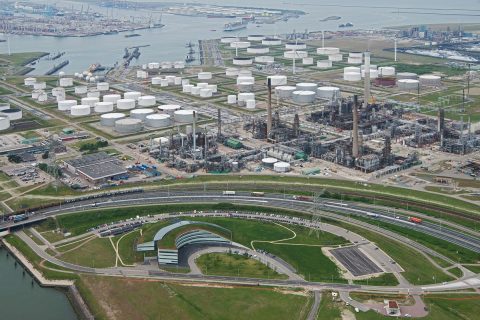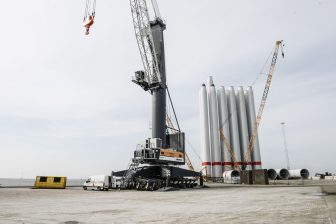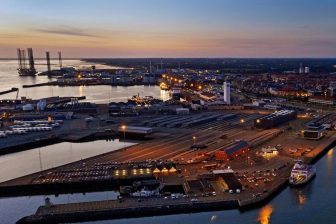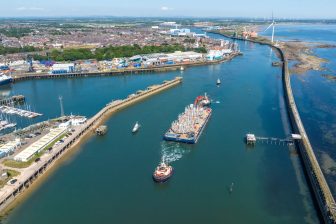
Port of Rotterdam eyes construction of largest “green hydrogen” plant in Europe
BP, Nouryon (formerly AkzoNobel Specialty Chemicals), and the Port of Rotterdam have joined forces to explore the construction of the largest “green hydrogen” plant in Europe for BP’s refinery in Rotterdam.
BP uses hydrogen to desulphurize products, but the oil company currently uses hydrogen that is made from hydrocarbons. Replacing this entirely with green hydrogen produced from water using renewable energy could potentially result in a reduction of 350,000 tonnes of CO2 emissions per year based on current circumstances, the companies say.
The parties have signed a memorandum of understanding to study the feasibility of a 250 MegaWatt water electrolysis facility to produce up to 45,000 tonnes of green hydrogen annually using renewable energy from offshore wind farms. “It would be the largest of its kind in Europe,” Port of Rotterdam states.
Under the agreement, Nouryon, with its knowledge of sustainable electrochemistry, would build and operate the facility, while Port of Rotterdam would facilitate local infrastructure and investigate options for further development of a green hydrogen hub in the area.
“The use of green hydrogen, made from water with renewable energy, has the potential to deliver significant emissions reductions at Rotterdam. Working with Nouryon and the Port of Rotterdam will allow us to explore and fully understand the technical, operational and financial dimensions of this potential opportunity,” says Ruben Beens, CEO of BP Netherlands.
Knut Schwalenberg, Managing Director Industrial Chemicals at Nouryon, added: “This partnership builds on our expertise in electrolysis technology to open up new value chains. With green hydrogen, we can provide sustainable solutions to our customers ranging from low-carbon fuels and industrial processes to new forms of circular chemistry.”
Allard Castelein, CEO of the Port of Rotterdam, commented: “Development of large-scale electrolysers connected to offshore wind farms is vital for making solid progress with the new energy system in order to realize our climate goals. This 250-megawatt electrolyser is a key proof point that Rotterdam has the ability to be a frontrunner in the energy transition, which is an important differentiator for the port industry.”
The partners intend to take a final investment decision on the project in 2022.
Large-scale
Parallel to the project with BP and Nouryon, Port of Rotterdam is also looking into realising a “hydrogen backbone and a special industrial site for electrolysers.” The port authority depends on large-scale hydrogen production to achieve its ambitious goal of having a CO2-neutral industry in 2050. According to studies by the Wuppertal Institute, it will involve capacity that is 10 to 30 times greater than that of the 250 MW electrolyser for BP, which amounts to 2.5 to 6.4 GigaWatt. For that reason, Port of Rotterdam is also investigating the possibility of developing a 2 GW energy conversion park, where a concentration of electrolysers could be built. Among other things, this should result in lower costs, especially for the connecting infrastructure, the port authority states.
You just read one of our premium articles free of charge
Register now to keep reading premium articles.



